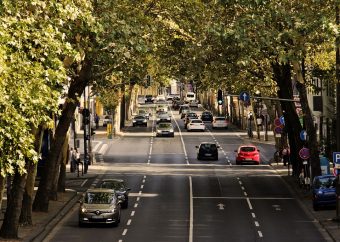The number of dirty diesel vehicles pumping out toxic emissions on Europe’s streets is still rising three years after the Dieselgate scandal began, according to a new report. More than 7m such cars and vans remain on UK roads alone.

There were 29m diesel vehicles whose emissions on the road were significantly higher than official laboratory-based EU limits when the diesel scandal erupted in September 2015. But that has now risen by to 43m, according to analysis by the group Transport & Environment (T&E). France has the most dirty diesels on the road, with 8.7m, followed by Germany’s 8.2m and the UK’s 7.3m.
Experts say the number of polluting diesel cars will continue rising until September 2019, when new EU regulations force older models out of showrooms. The slow pace of change has been allowed to enable the manufacturers with most polluting fleets to catch up, the experts argue.
“After three years, it is shocking that the number of dirty diesel cars and vans on the road today is still rising,” said Florent Grelier, at T&E. “The EU needs to take action to clean up these grossly polluting vehicles and prevent their sale or use until they are properly fixed. If not, they will continue damaging citizens’ health for decades to come.”
In the UK, illegal levels of the nitrogen oxides produced by diesel engines are estimated to cause 23,500 early deaths every year. Car manufacturers were fined billions in the US and Germany, but have yet to pay any significant financial penalty in the UK for selling polluting vehicles. “Impossible-to-cheat” emissions tests show almost all new diesels on sale are still dirty.
T&E calculated the number of dirty diesels on the road using data on emissions from the government investigations in the UK, France, Germany, Netherlands and Spain that followed Dieselgate, plus data from independent testers such as Emissions Analytics. Vehicles emitting more than double the official lab limit in real driving were considered dirty. T&E then used sales data to calculate the totals.
“They are absolutely right about the number of dirty diesels on the road increasing and this number will go up further,” said Nick Molden, CEO of Emissions Analytics. He said the vast majority of the diesels currently on the market are four to five times above the legal limit when on the road. This would not change until August 2019 when models approved under old, flawed rules are withdrawn from sale, he said.
Sales of diesel cars have plunged in the UK and Grelier said: “The only way to ensure cars are truly clean is to accelerate the shift to zero-emission technology.” However, Molden warned that dumping diesel entirely could increase the carbon emissions that drive climate change. “There were a lot of very bad diesels, but there are now some very good ones,” he said
The newest diesels emit about the same NOx as petrol cars, but 18% less CO2, Molden said. Electric cars remain expensive to buy (although cheaper to run), meaning most purchasers are choosing petrol models. However, carmakers have a big challenge in rebuilding confidence in diesels, he said: “It is an uphill struggle and they have left it late in the day.”
A spokeswoman for the European Automobile Manufacturers’ Association said: “The automobile industry has invested heavily to achieve significant improvements in emissions [in new models]. Research by also shows that the latest generation of diesel vehicles will continue to play a major role in helping reach future CO2 targets. Likewise, these vehicles will also have a positive impact on improving air quality, along with other local measures.”
Source: Guardian

